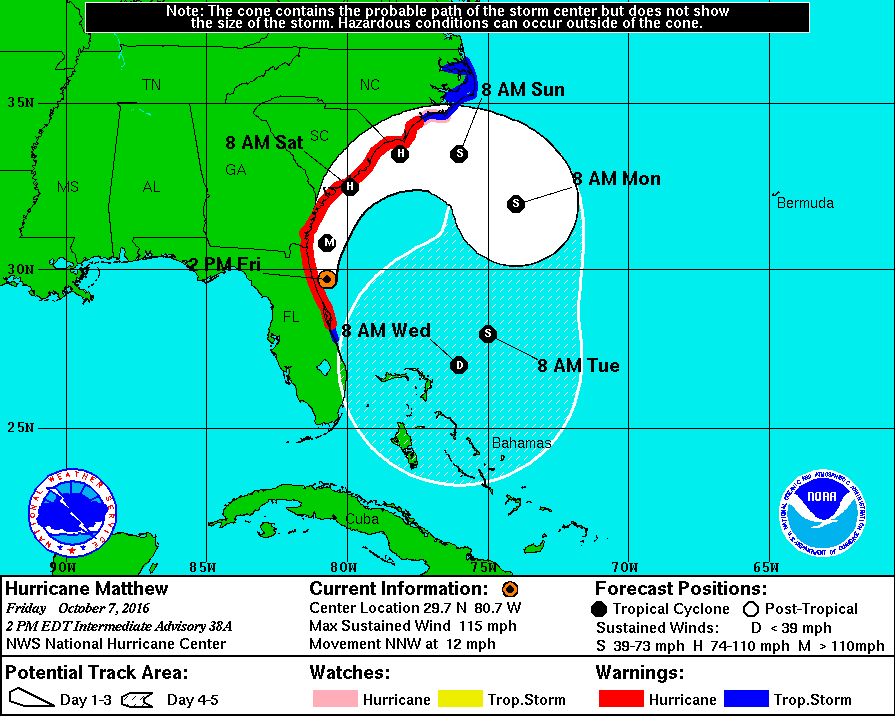Storm expected to hit this weekend
By Diego Flammini
Assistant Editor, North American Content
Farms.com
With Hurricane Matthew scheduled to hit North Carolina this weekend, hog farmers are being reminded to take proper precautions to protect themselves and their animals.
“Our farmers have faced several strong hurricanes in the past. They know what to expect and understand the importance of being prepared ahead of time,” said Deborah Johnson, CEO of the N.C. Pork Council, according to The Sampson Independent. “Farmers are putting emergency action plans into effect to protect their employees, their animals and farms.”
Farmers are being asked to:
- Test on-farm generators to make sure they’re working properly and ensure there’s enough fuel to power them.
- Stock feed bins and make other arrangements should deliveries be delayed.
- Monitor animal waste management systems and apply fertilizer to dry cropland.
Johnson said at the end of the day, farmer safety is paramount.
“Our top priority is keeping our farmers and our animals safe,” Johnson said. “No one is quite sure what to expect from Hurricane Matthew, but everyone is working together and doing everything they can to prepare for the storm in advance. Once the storm passes, we’ll assess any damage that occurred and be ready to respond quickly.”

Hurricane Matthew's projected route
Photo: National Hurricane Center
All across North Carolina, farmers are trying to prepare for Hurricane Matthew, despite not knowing what the storm could bring.
On Monday, Governor Pat McCrory declared a state of emergency in 66 counties to help producers get as much work done before Matthew arrives.